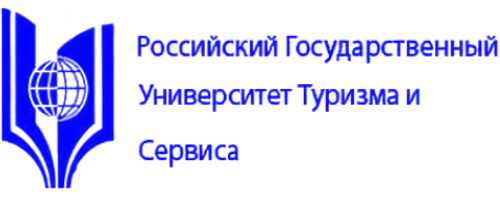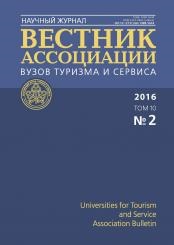Stat'ya posvyaschena issledovaniyu konvergentnogo i divergentnogo myshleniya v yunosheskom vozraste. Tvorcheskaya iniciativa, samoobrazovanie, umenie reshat' nestandartnye zadachi – vse eti kachestva neobhodimy studentam-vypusknikam pri ustroystve na rabotu. Imenno poetomu razvitie konvergentnogo i divergentnogo myshleniya tak aktual'no na segodnyashniy den'. Konvergentnoe myshlenie – eto lineynoe, logicheskoe myshlenie, napravlennoe na poetapnoe vypolnenie zadachi i sledovanie zadannym algoritmam. Divergentnoe myshlenie – eto al'ternativnoe myshlenie, napravlennoe na poisk mnozhestva original'nyh resheniy odnoy postavlennoy zadachi ili problemy. V yunosheskom vozraste myshlenie stanovitsya osmyslennym processom za schet razvitiya refleksii, pri etom usilivayutsya individual'nye razlichiya mezhdu sverstnikami. Tak, odni individy, dostigshie etogo vozrastnogo etapa, harakterizuyutsya otsutstviem poznavatel'nogo interesa, drugie, naprotiv, proyavlyayut podlinnyy interes k uchebe i tvorchestvu. V etom vozraste razvitie kreativnosti myshleniya i zhelanie reshat' nestandartnye zadachi tesno svyazano s razvitiem intellekta, predpolagayuschee ne prosto usvoenie informacii, a proyavlenie intellektual'noy iniciativy i sozdanie chego-to novogo. U yunoshey i devushek poyavlyaetsya stremlenie k teoreticheskomu i logicheskomu myshleniyu, blagodarya kotorym oni uchatsya izmenyat' i napravlyat' svoi mysli. Proishodit razvitie tvorcheskih sposobnostey, kotorye nosyat celepolagayuschiy harakter. Umstvennoe razvitie studentov yunosheskogo vozrasta zaklyuchaetsya kak v nakoplenii umeniy, navykov i znaniy, tak i v formirovanii novyh idey. V rezul'tate konvergentnoe i divergentnoe myshlenie stanovitsya vazhnym poznavatel'nym processom yunosheskogo vozrasta. Rannyaya yunost' ohvatyvaet period ot 15 do 18 let. Etot etap sovpadaet s podgotovkoy yunoshey i devushek k postupleniyu v samostoyatel'nuyu zhizn', kotoraya zaklyuchaetsya v vybore professii i zhiznennogo puti. Poetomu v dannom issledovanii my rassmatrivaem imenno etot vozrast.
konvergentnoe myshlenie, divergentnoe myshlenie, kreativnost', yunosheskiy vozrast.
1. Avdyunina N.A., Development of divergent and convergent thinking in the learning process of students. The child in the educational space of the metropolis, Russian scientific-practical conference: Text publication, 2016, pp. 54-56. (In Russ.).
2. GuiIfогd J.P., Three faces of intellect. Moscow: Progress, 1965, 456 p. (In Russ.).
3. Druzhinin V.N., Psychology of the XXI century: Student book for universities. Moscow: Perse, 2003, 863 p. (In Russ.).
4. Dryazgunov K.V., Formation of pupils’ divergent thinking on the lessons of social studies. Obrazovanie i obshchestvo, no. 1, 2003, pp. 132-140. (In Russ.).
5. Ivlev Yu.V., Logical-methodological bases of pedagogical culture. Vestnik Assotsiatsii vuzov turizma i servisa, vol. 10, no. 3, 2016, pp. 59-64. (In Russ.).
6. Leont’ev A.N., Logical and psychological thinking. Vestnik Moskovskogo universiteta. Seriya 14: psikhologiya, no. 2, 2003, pp. 3-18. (In Russ.).
7. Maklakov A.G., General psychology: Student book for universities. St. Petersburg: Piter, 2007, 583 p. (In Russ.).
8. Pluzhnikova N.N., Pedagogy of constructivism as a methodological model for contemporary culture. Vestnik Assotsiatsii vuzov turizma i servisa, vol. 10, no. 3, 2016, pp. 65-74. (In Russ.).
9. Ratanova T.A., Relationship of intelligence indicators and cognitive differentiation depending on the student learning specialization. Psychology of intelligence and creativity: traditions and innovations: proceedings of scientific conference dedicated to the memory of Ya.A. Ponomarev and V.N. Druzhinin (Moscow, October 7-8, 2010). Moscow: IP RAN, 2010, pp. 162-170. (In Russ.).
10. Sokal’skii E.A., Youth - the time of trial of creative forces and starts for the future. Vestnik MGGU im. M.A. Sholokhova. Seriya «Pedagogika i psikhologiya», no. 2, 2016, pp. 97-108. (In Russ.).
11. Sternberg R.J., Forsythe G.B., Hedlund J., Practical intelligence in everyday life. St. Petersburg: Piter, 2002, 272 p. (In Russ.).
12. Tunnik E.E., Diagnostics of creative thinking. Creative tests. St. Petersburg: Didaktika Plus, 2002, 48 p. (In Russ.)
13. Taylor C.W., Cultirating multiple creative talents in students. Journal for the Education of the Giften, vol. 8, 1985, pp. 187-198.
14. Torrance E.P., Scientific views of creativity and factors affecting its growth. Daedalus: Creativity and Learning, 1965, pp. 663-679.





